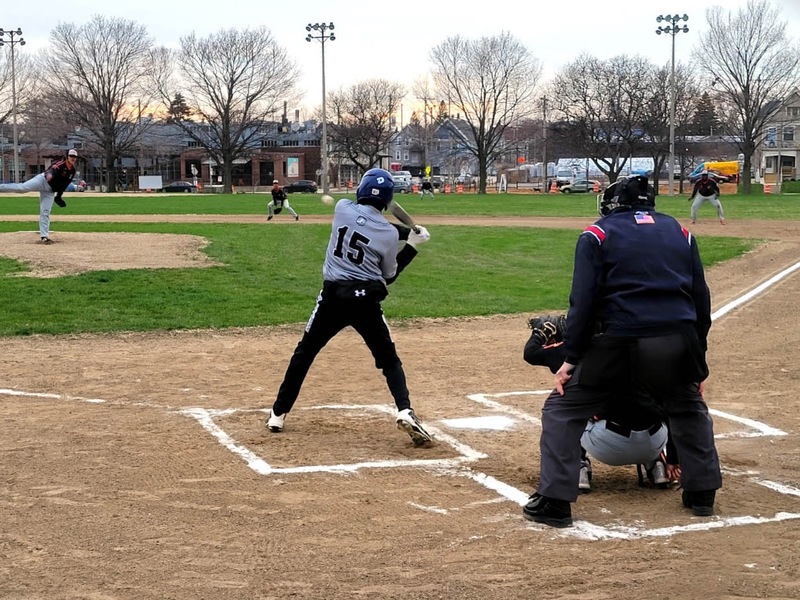It’s a great event. For eight bucks a ticket, you can get into Lambeau Field to watch the Packers in person. The place, understandably, fills up.
I tuned in to see if I could get a read on this team and whether Brett Favre still had it. I watched Favre move around like a young man and complete passes and appear like he’s ready to return to his exalted place among the best quarterbacks in the league.
But the biggest thing that hit me during the scrimmage was all those people who showed up and the question that crowd prompted:
Is it better to watch a sporting event in person or on television?This question seems especially timely because the football season is about to start and it was television and Pete Rozelle that made football our national pastime.
The biggest difference, of course, is price. Let’s say two of you are going to a game, parking, eating and getting some memorabilia. You’re well into and maybe over $100. At home, you’ve got some beer, soda, chips, dip and maybe one of those fake fireplace logs. You’re still under $20 as long, provided you don’t count your mortgage or rent.
Second, let’s take company. When you go to a game, you have no choice about who sits around you. It’s easy to get placed in front of some bum who figures his ticket entitles him to swear, spit, smoke, yell at the top of his lungs, spill beer and drop peanut shells down your shirt. At home, you can pretty much pick who you want to watch the game with, unless your wife invites her brother.
Third, let’s take dress. If you go to a baseball game you’ve got to dress like you are going to a company picnic. To a basketball game you dress like you’re headed to a ritzy cocktail party. And to a football game you dress like you’re going ice fishing. At home, you dress like you may climb back into bed any second.
But all of that is just ambience. Let’s talk about actually watching the game.
For the purposes of this argument, I want to assume that your seats are about halfway up from the field in whatever sport we are talking about. I was tempted to eliminate instant replay from the television broadcasts, but you also get replay at the stadiums so I’m leaving it in.
The best and worst thing about being at the stadium is that you don’t listen to the announcers. In the case of Bob Uecker, that’s a loss. In the case of Lynn Swann or Bill Maas or John Madden, it’s an advantage to go to the game. There are people who go to the game and take little portable radios and listen as well, but that’s cheating.
If you are a stat person, television is your baby. For some reason, television loves statistics. The more arcane, the better. When Tim McCarver tells you that so and so pitcher has a 37 percent out record when he goes to 2-and-2 on switch hitters batting right handed, television has a graphic for it. Television loves to clutter up the screen with graphics that take longer to read than the third chapter of “War and Peace.” If you love stats, you don’t get much of them at the live game.
Television is also strong at the close-up. No matter where you are sitting in a stadium, you can’t be as close as a television camera can probe. You can see the agony and the sweat on the faces of the athletes. It is one of the major strengths of television.
It may seem, on the surface, that I prefer watching games on television and would recommend it for any fan. And it’s true, except for one thing.
It’s the fourth quarter at the Bradley Center. There are three minutes left and the Bucks are down by 11 points. They begin to come back. A three-pointer here. A defensive stop there. A fast break dunk off a turnover. A strategic timeout. And then a basket at the buzzer to win the game for Milwaukee.
And everyone is on his or her feet with a shared experience which television can’t capture. It’s old white U. S. senators exchanging high-fives with little black girls from St. Mary Magdalene grade school. It’s rich and poor, black and white, young and old and men and women smiling, hugging, and jumping up and down. For a moment, a game has made all of us the same, equal. And no television broadcast can ever, ever capture that.
With a history in Milwaukee stretching back decades, Dave tries to bring a unique perspective to his writing, whether it's sports, politics, theater or any other issue.
He's seen Milwaukee grow, suffer pangs of growth, strive for success and has been involved in many efforts to both shape and re-shape the city. He's a happy man, now that he's quit playing golf, and enjoys music, his children and grandchildren and the myriad of sports in this state. He loves great food and hates bullies and people who think they are smarter than everyone else.
This whole Internet thing continues to baffle him, but he's willing to play the game as long as OnMilwaukee.com keeps lending him a helping hand. He is constantly amazed that just a few dedicated people can provide so much news and information to a hungry public.
Despite some opinions to the contrary, Dave likes most stuff. But he is a skeptic who constantly wonders about the world around him. So many questions, so few answers.







